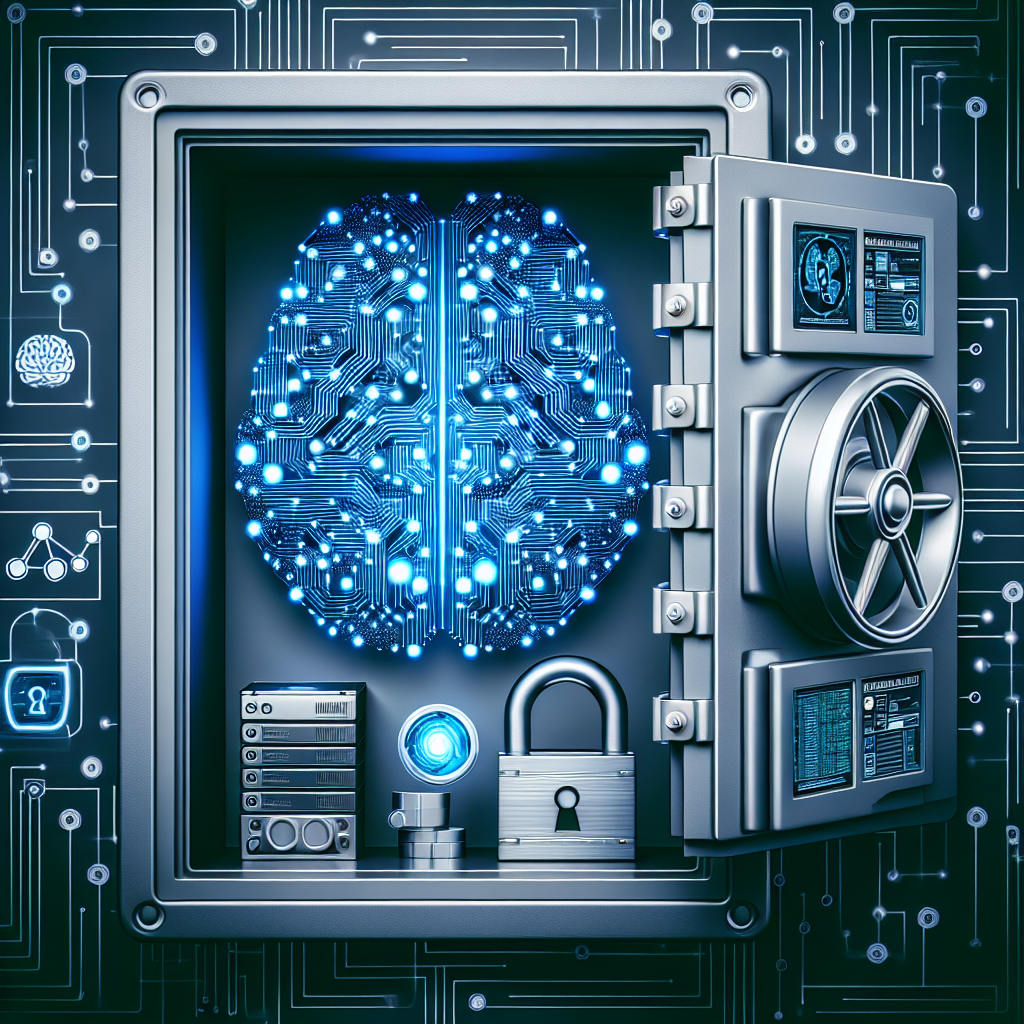Introduction
Artificial Intelligence (AI) is revolutionizing the way we approach cybersecurity by enhancing data protection and privacy. As technology continues to advance at a rapid pace, the threat landscape for cyber attacks is becoming increasingly complex. AI has emerged as a powerful tool in helping organizations defend against these threats and safeguard sensitive information from malicious actors. This article will explore how AI is being used to strengthen cybersecurity measures and protect data privacy.
Enhancing Threat Detection
One of the key ways AI is enhancing cybersecurity is through its ability to detect and respond to threats in real-time. Traditional cybersecurity measures rely on predefined rules and signatures to identify malicious activity. However, these rules can be easily circumvented by sophisticated cyber criminals using advanced techniques.
AI, on the other hand, utilizes machine learning algorithms to analyze vast amounts of data and identify patterns that may indicate a potential threat. This allows AI systems to adapt and learn from new threats, making them more effective at detecting and responding to cyber attacks. By continuously monitoring network traffic and user behavior, AI can quickly identify suspicious activity and take proactive measures to mitigate the threat.
AI-powered threat detection systems can also help organizations prioritize and focus on the most critical threats, reducing the time and resources required to investigate and respond to incidents. This enables security teams to be more efficient and effective in protecting their networks and sensitive data.
Improving Incident Response
In addition to threat detection, AI is also being used to improve incident response capabilities. In the event of a cyber attack, time is of the essence in minimizing the damage and restoring normal operations. AI can help streamline the incident response process by automating routine tasks and providing valuable insights to security teams.
For example, AI can be used to analyze the scope and impact of a cyber attack, identify compromised systems, and recommend the most effective response strategies. This can help organizations quickly contain the attack and prevent further damage. AI-powered incident response systems can also assist in recovering critical data and restoring systems to normal operation.
By leveraging AI for incident response, organizations can reduce the time it takes to detect and respond to cyber attacks, minimizing the potential impact on their operations and reputation. This proactive approach to cybersecurity can help organizations stay ahead of evolving threats and protect their data privacy.
Protecting Data Privacy
Data privacy is a growing concern for organizations and individuals alike, as the amount of sensitive information stored and processed online continues to increase. AI is playing a crucial role in helping organizations protect data privacy by implementing robust security measures and ensuring compliance with regulations such as the General Data Protection Regulation (GDPR) and the California Consumer Privacy Act (CCPA).
AI can be used to encrypt sensitive data, monitor access and usage patterns, and detect unauthorized activities that may compromise data privacy. By analyzing user behavior and identifying potential risks, AI systems can help organizations prevent data breaches and unauthorized access to sensitive information. This proactive approach to data privacy can help organizations build trust with their customers and demonstrate their commitment to protecting their data.
Furthermore, AI can also be used to automate data privacy compliance processes, such as data classification, access control, and data retention policies. This can help organizations streamline their compliance efforts and ensure that they are meeting regulatory requirements to protect data privacy.
Frequently Asked Questions (FAQs)
Q: How does AI help in detecting and responding to cyber threats?
A: AI utilizes machine learning algorithms to analyze vast amounts of data and identify patterns that may indicate a potential threat. By continuously monitoring network traffic and user behavior, AI can quickly identify suspicious activity and take proactive measures to mitigate the threat.
Q: How can AI improve incident response capabilities?
A: AI can help streamline the incident response process by automating routine tasks and providing valuable insights to security teams. AI can be used to analyze the scope and impact of a cyber attack, identify compromised systems, and recommend the most effective response strategies.
Q: How does AI protect data privacy?
A: AI can be used to encrypt sensitive data, monitor access and usage patterns, and detect unauthorized activities that may compromise data privacy. By analyzing user behavior and identifying potential risks, AI systems can help organizations prevent data breaches and unauthorized access to sensitive information.
Q: How can organizations leverage AI for data privacy compliance?
A: AI can be used to automate data privacy compliance processes, such as data classification, access control, and data retention policies. This can help organizations streamline their compliance efforts and ensure that they are meeting regulatory requirements to protect data privacy.
Conclusion
AI is revolutionizing cybersecurity by enhancing data protection and privacy. By leveraging machine learning algorithms and advanced analytics, organizations can detect and respond to cyber threats in real-time, improve incident response capabilities, and protect data privacy. AI-powered solutions are helping organizations stay ahead of evolving threats and safeguard sensitive information from malicious actors. As technology continues to advance, AI will play an increasingly important role in strengthening cybersecurity measures and ensuring data privacy compliance.

